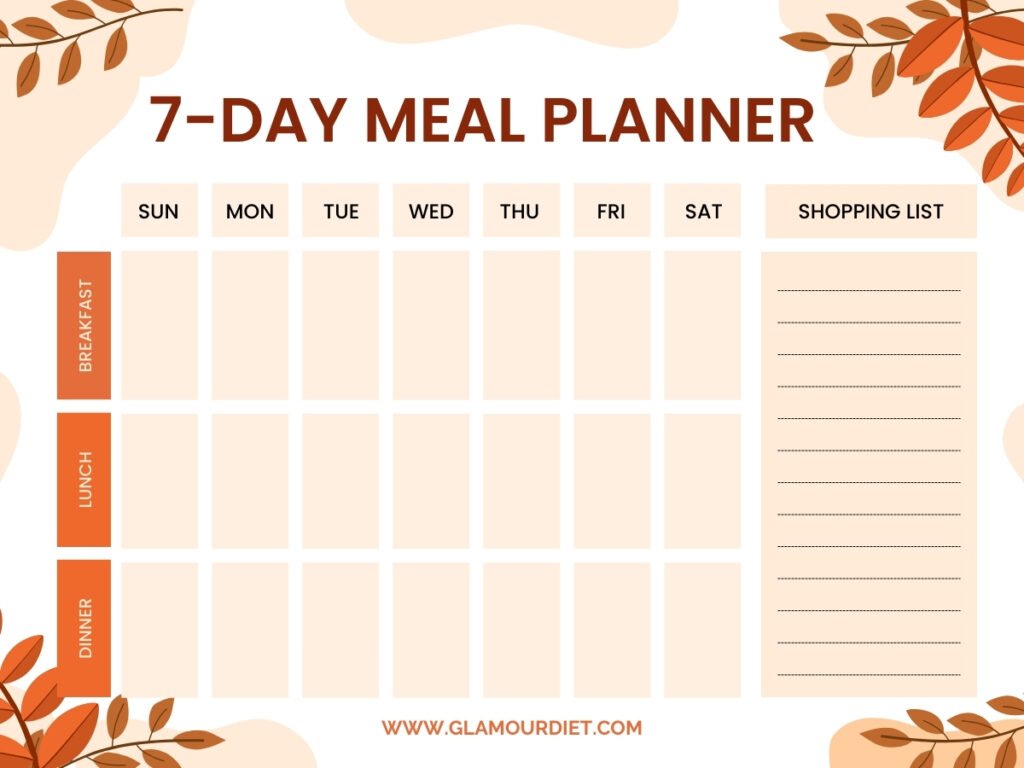This 7-day low carb meal plan for the keto diet is designed to help you kickstart your journey towards a healthier lifestyle while enjoying delicious, satisfying meals. Each day features a variety of recipes that are low in carbohydrates and high in healthy fats, ensuring you stay within your macro goals. From hearty breakfasts to flavorful dinners and snacks, this meal plan provides easy-to-follow options that will keep you energized and on track with your keto diet. Perfect for beginners and seasoned keto enthusiasts alike, this plan simplifies meal prep and makes healthy eating enjoyable!

Introduction – Low Carb Meal Plan
A low-carb diet can be a game-changer for those looking to lose weight, manage their blood sugar levels, or adopt a healthier lifestyle. By focusing on reducing carbohydrate intake and increasing protein and healthy fats, individuals can experience numerous health benefits. This 7-day low-carb meal plan is designed to help you kickstart your journey toward better health and well-being.
Types and Categories
Different classifications of low-carb diets
Ketogenic Diet
The ketogenic diet, or keto, is a high-fat, moderate-protein, and very low-carb diet that aims to put your body into ketosis, where it burns fat for fuel instead of carbohydrates.
Atkins Diet
The Atkins diet is a low-carb diet that focuses on limiting carbohydrate intake while increasing protein and fat consumption. It is divided into four phases: induction, balancing, fine-tuning, and maintenance.
Paleo Diet
The Paleo diet, also known as the Caveman diet, emphasizes whole, unprocessed foods that were presumably available to humans during the Paleolithic era. This diet includes meats, fish, fruits, vegetables, nuts, and seeds while excluding grains, legumes, and processed foods.
Low-Carb High-Fat Diet (LCHF)
The LCHF diet focuses on reducing carbohydrate intake and increasing consumption of healthy fats. This approach is similar to the ketogenic diet but allows for more flexibility in carbohydrate consumption.
Low-Carb Mediterranean Diet
The low-carb Mediterranean diet combines the principles of the Mediterranean diet, which emphasizes fruits, vegetables, whole grains, and healthy fats, with a low-carb approach to improve overall health.
Symptoms and Signs
Benefits of a Low-Carb Diet
Weight Loss
One of the most significant benefits of a low-carb diet is weight loss. By reducing carbohydrate intake, the body is forced to burn fat for energy, leading to weight loss.
Improved Blood Sugar Levels
A low-carb diet can help stabilize blood sugar levels, making it an excellent option for individuals with diabetes or insulin resistance.
Increased Energy Levels
Many people report increased energy levels and reduced fatigue when following a low-carb diet, as the body becomes more efficient at using fat for fuel.
Better Mental Clarity
Some studies suggest that a low-carb diet can improve mental clarity and cognitive function, possibly due to more stable blood sugar levels and reduced inflammation.
Reduced Inflammation
By reducing the intake of processed foods and sugars, a low-carb diet can help decrease inflammation in the body, leading to better overall health.

Causes and risk factors
Biological Factors
Genetic predisposition can affect how well an individual responds to a low-carb diet. Some people may naturally have a higher carbohydrate tolerance, while others may be more sensitive.
Environmental Factors
Access to healthy, low-carb foods and a supportive environment can significantly impact the success of a low-carb diet. Living in an area with limited access to fresh produce and healthy fats can make it challenging to adhere to the diet.
Lifestyle Factors
Lifestyle choices, such as physical activity levels, stress, and sleep patterns, can also influence the effectiveness of a low-carb diet. Incorporating regular exercise, managing stress, and getting adequate sleep are essential for optimal health.
Diagnosis and Tests
How to Determine if a Low-Carb Diet is Right for You
Blood Tests
Blood tests can help determine your current health status and identify any underlying conditions that may affect your ability to follow a low-carb diet. Tests such as fasting blood glucose, lipid profile, and HbA1c can provide valuable insights.
Medical History Evaluation
A thorough evaluation of your medical history by a healthcare provider can help determine if a low-carb diet is suitable for you. This evaluation will consider any existing health conditions, medications, and lifestyle factors.
Consultation with a Healthcare Provider
Consulting with a healthcare provider, such as a nutritionist or dietitian, can provide personalized recommendations and guidance on safely and effectively implementing a low-carb diet.
Treatment Options
Implementing a Low-Carb Diet
Meal Planning
Meal planning is crucial for success on a low-carb diet. Plan your meals and snacks ahead of time to ensure you have healthy, low-carb options available.
Grocery Shopping Tips
When grocery shopping, focus on whole, unprocessed foods such as meats, fish, eggs, vegetables, nuts, seeds, and healthy fats. Avoid processed foods, sugary snacks, and high-carb items.
Cooking and preparation tips
Cooking your meals at home allows you to control the ingredients and ensure they align with your low-carb goals. Experiment with low-carb recipes and cooking methods to keep your meals exciting and satisfying.
Monitoring Progress
Monitor your progress regularly by tracking your weight, blood sugar levels, and overall well-being. Adjust your diet as needed to ensure you continue to meet your health goals.
Preventive Measures
Tips for Maintaining a Low-Carb Lifestyle
Avoiding Common Pitfalls
Be aware of common pitfalls, such as hidden sugars in processed foods, and make an effort to avoid them. Read food labels carefully and choose whole, unprocessed foods whenever possible.
Staying Motivated
Staying motivated can be challenging, especially when starting a new diet. Set realistic goals, celebrate your successes, and seek support from friends, family, or online communities.
Finding Support and Resources
Finding support and resources can significantly improve your success. Join a low-carb support group, follow low-carb blogs and social media accounts, and consider working with a healthcare provider for personalized guidance.
Personal Stories or Case Studies
Real-Life Implications Through Individual Stories
Success Stories
Many individuals have experienced significant health improvements and weight loss on a low-carb diet. These success stories can provide inspiration and motivation for others.
Challenges and How to Overcome Them
While a low-carb diet can offer numerous benefits, it can also present challenges. Understanding these challenges and learning how to overcome them can help you stay on track and achieve your goals.
Expert Insights

Quotes or Advice from Medical Professionals
Nutritionists
“Adopting a low-carb diet can be a powerful tool for improving health and managing weight. It’s important to focus on whole, nutrient-dense foods and to seek personalized advice from a healthcare provider.” Jane Doe, Registered Dietitian
Dietitians
“A low-carb diet can help stabilize blood sugar levels and reduce inflammation. However, it’s essential to balance your macronutrients and ensure you’re getting enough fiber and micronutrients.” John Smith, Dietitian
Doctors
“Before starting a low-carb diet, it’s crucial to consult with a healthcare provider to ensure it’s appropriate for your individual health needs and to monitor your progress.” Dr. Emily White, MD
Conclusion
A low-carb diet can offer numerous health benefits, including weight loss, improved blood sugar levels, increased energy, better mental clarity, and reduced inflammation. By understanding the different types of low-carb diets, implementing effective meal planning and preparation strategies, and seeking support and guidance from healthcare professionals, you can successfully adopt and maintain a low-carb lifestyle. Remember to monitor your progress, stay motivated, and make adjustments as needed to achieve your health goals.

